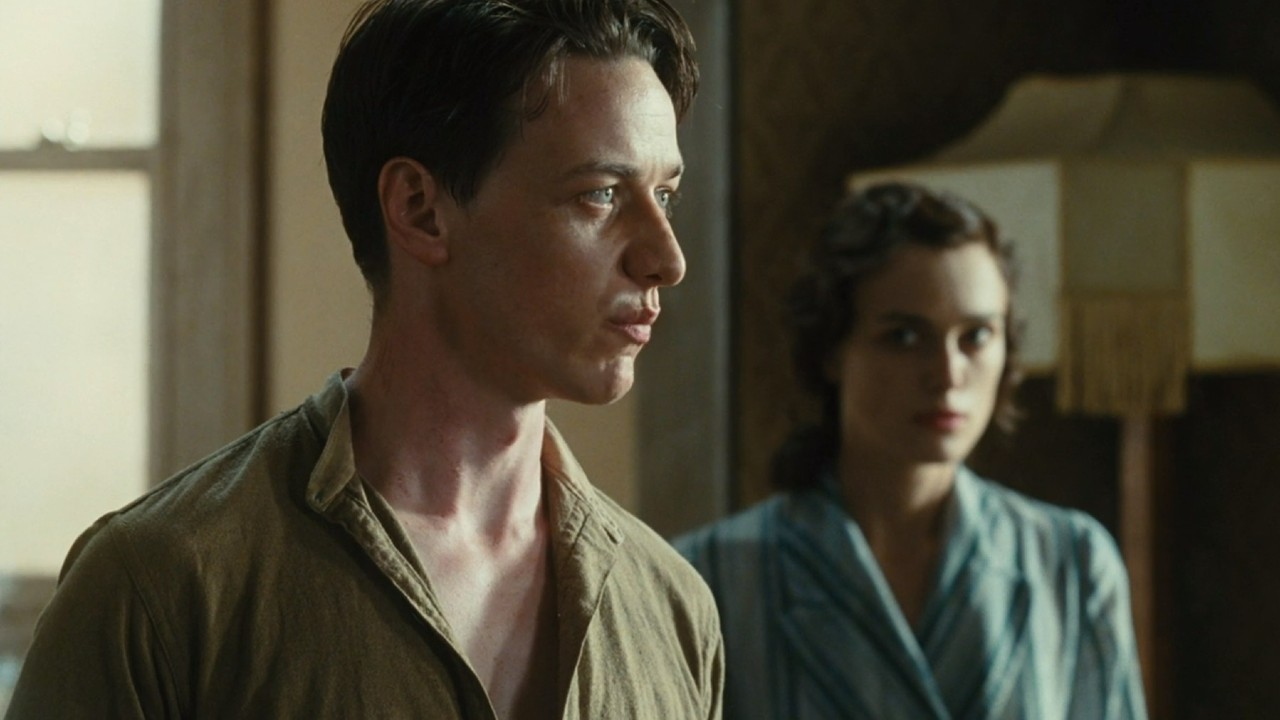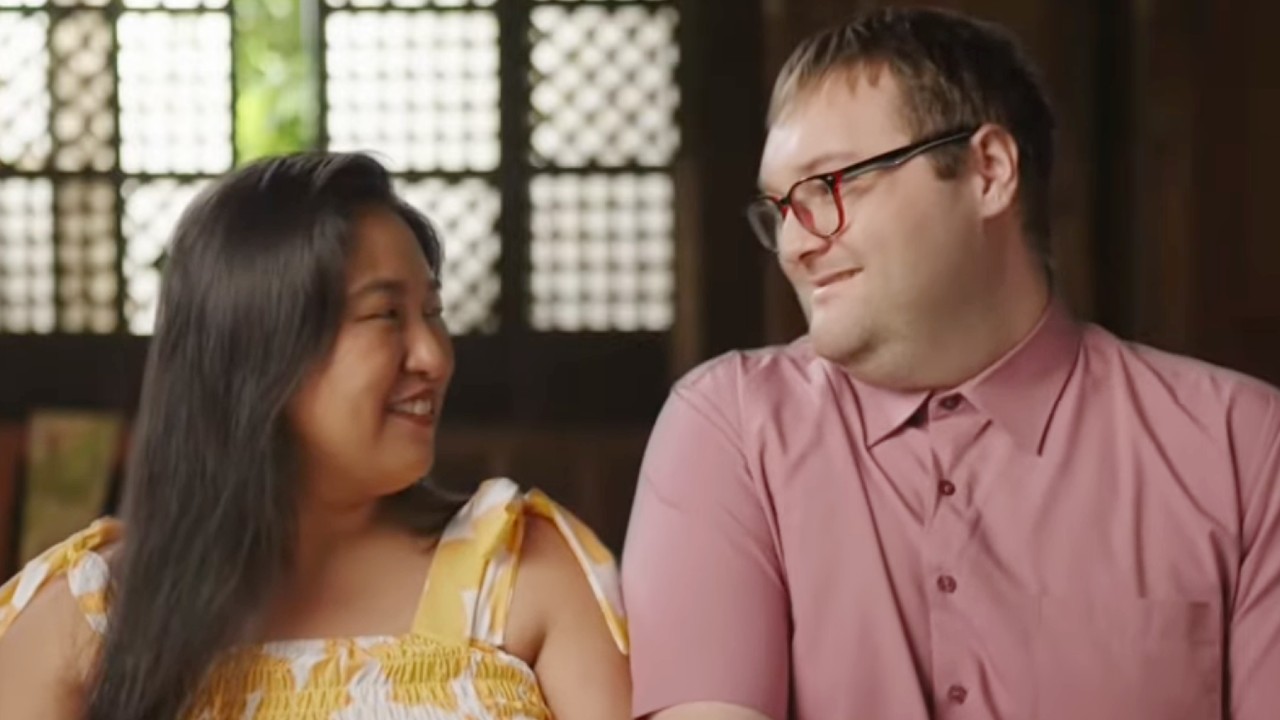Interview: Christopher Hampton Of Atonement

Writing the adaptation of a beloved book is one kind of challenge, but when the author is not only alive but the executive producer? Now that’s tough. Christopher Hampton, though, was up to the challenge, and has written a screenplay that is more faithful to the original book than just about any other adaptation this year. He’s worked on the screenplay over several years and with two different directors, and has all the information about how some of the most iconic parts of the movie came to be. That stunning, five-minute tracking shot through a war zone? Yeah, that was because of budget constraints. Amazing how sometimesless money makes a better action sequence.
How did you go about adapting this book?
I applied for the job, because I read the book when I was on holiday at the end of 2001. When I got back to London I contacted my agent and said ‘I would love to do a screenplay of Atonement,’ and she said ‘Well, join the gang.’ There were a lot of writers interested in doing it. Ian McEwan had in his contract, he was executive producer, he retained the right to be consulted on and in fact choose the screenwriter. So I had dinner with Ian and sort of set out my feelings about the book, and how it maybe should be done. He said I passed the audition. What I said to him, what I was intending to do, didn’t actually bear much resemblance to what we wound up with at the end, because that’s the way it goes. I started with a different director, I started with Richard Eyre. I worked with him for over a year and did maybe three drafts, consulting at each point with Ian. At the end of that period we had the script with sort of a framing device, which began with the old woman arriving back at the hotel, which her childhood home had been turned into. You saw her from time to time in the course of the film. […] At a certain point one of those things happened, which often happens with films, where you think ‘They’re not going to make it.’ There’s a silence that’s been going on for just that bit too long. At which point Richard Eyre was offered Notes on a Scandal, and off he went. I got at that point introduced to Joe Wright, who said, ‘Yeah the script is fine, but can we start from scratch?’
How was it working with Joe vs. Richard?
It was differently mostly in that their approach was very different. What Joe basically did is he set about kicking away the crutches. He said ‘Let’s try and do it without a frame, so the audience at the end of the film is as surprised as the readers are at the end of the book. He said ‘Let’s take away the voiceover, try and convey everything without that particular help. And let’s try not to worry about the linearity of the story.’ […] Eventually after another year, Joe and I went away to Italy for two weeks and just went through every single page. He’s very obsessive, Joe. Most of the really good directors I’ve worked with are completely obsessive. Right up until shooting he was ringing me up.
Did you originally write the Dunkirk sequence as one long, five-minute take?
No, it was not. In fact what we did was we were faithful to the book in that sequence too. […] We had all those things [from the book] in the script, and there was a budget problem. They insisted on making the film for $30 million, because they felt all along that it was a risky venture. That was the obvious section to start weeding out. We thought we could make a virtue of this by just having these three soldiers, like The Wizard of Oz or something, in some phantasmagorical way walking up through these landscapes, and then suddenly arriving at this teeming hell. As we got closer to it, Joe said, ‘Can we take all these various scenes, these montage images that we have, and do them all in one shot? And then only have to have the extras, a thousand extras, for one day.’ And so it was. It was pretty nerve-racking. We started shooting at 4 in the afternoon, and we got three takes done, the third of which was at magic hour, you know when the sun is shedding these beautiful lights. Then we went back for a fourth take, in the middle of which the Steadicam operator fell over. The guy had been walking backwards carrying this vast thing through the sand all day, so it’s not surprising. The third take as it turns out was the only one that was workable.
Your Daily Blend of Entertainment News
What were the challenges of working with the storyline with two protagonists and an antagonist who becomes the protagonist toward the end?
Well, in a way, the sleight of hand that we operated is that the book is about Briony. She is the central characters and the backbone of the whole book. We somehow felt that we have to shift the focus. We needed to spend some time with those two characters [Cecilia and Robbie] together, and we needed to admit to ourselves that their relationship was the center of the film. We just danced around those problems as best we could.
It sounds like you had more involvement on the set than most writers do.
It really in the end comes down to the relationship between the writer and the director. I’ve had very good relationships with directors. Stephen Frears, as I’ve said, has in his contract that the writer has to be on the set. Joe’s not like that—we cut off, and I didn’t go to the set much. I went on Dunkirk day, and because I speak French I went and worked on the French language sections. I put my head around the door once or twice. By the time he embarked on it, he knew what he wanted and he didn’t need the writer. It all depends on the individual director and what their temperament is, really.
Did you see Vanessa Redgrave as the actress for older Briony? It’s a welcome surprise when she shows up.
He did a very smart thing,Joe. This is really good thinking for a director: He cast the child first. Most people would be tempted to cast the 18-year old first. He cast the child first, and then he had to find two actresses who would plausibly be the grown-up versions of the child. It’s quite a short list of those distinguished old English actresses, and I think Vanessa is the one who can most reliably be expected to break your heart. There’s something tragic about her face that works terribly well. Joe rehearsed the three actresses together a lot, so that they all devised ways of walking and mannerisms and so on that linked, that spread from one section to another.
I’ve heard a rumor that you’re doing the adaptation of "Jonathan Strange and Mr. Norrell".
I’m not doing that anymore. I started out on that, but I slightly fell out with them on the topic that I often fall out with, which is that they seemed to want to go too far away from the book for my tastes.
What attracts you to these complex stories?
I love doing the big crossword puzzle. You know, all screenwriters get fired from time to time, and I have been five or six times. And it almost always has to do with an issue of my saying ‘You know, this is not how it is in the book. Why do you want to change it? The change you’re proposing is not as interesting as what the book is proposing.’ It was a really interesting piece of work to do, so I don’t regret it. But it’s in the hands of someone else now.
Staff Writer at CinemaBlend

